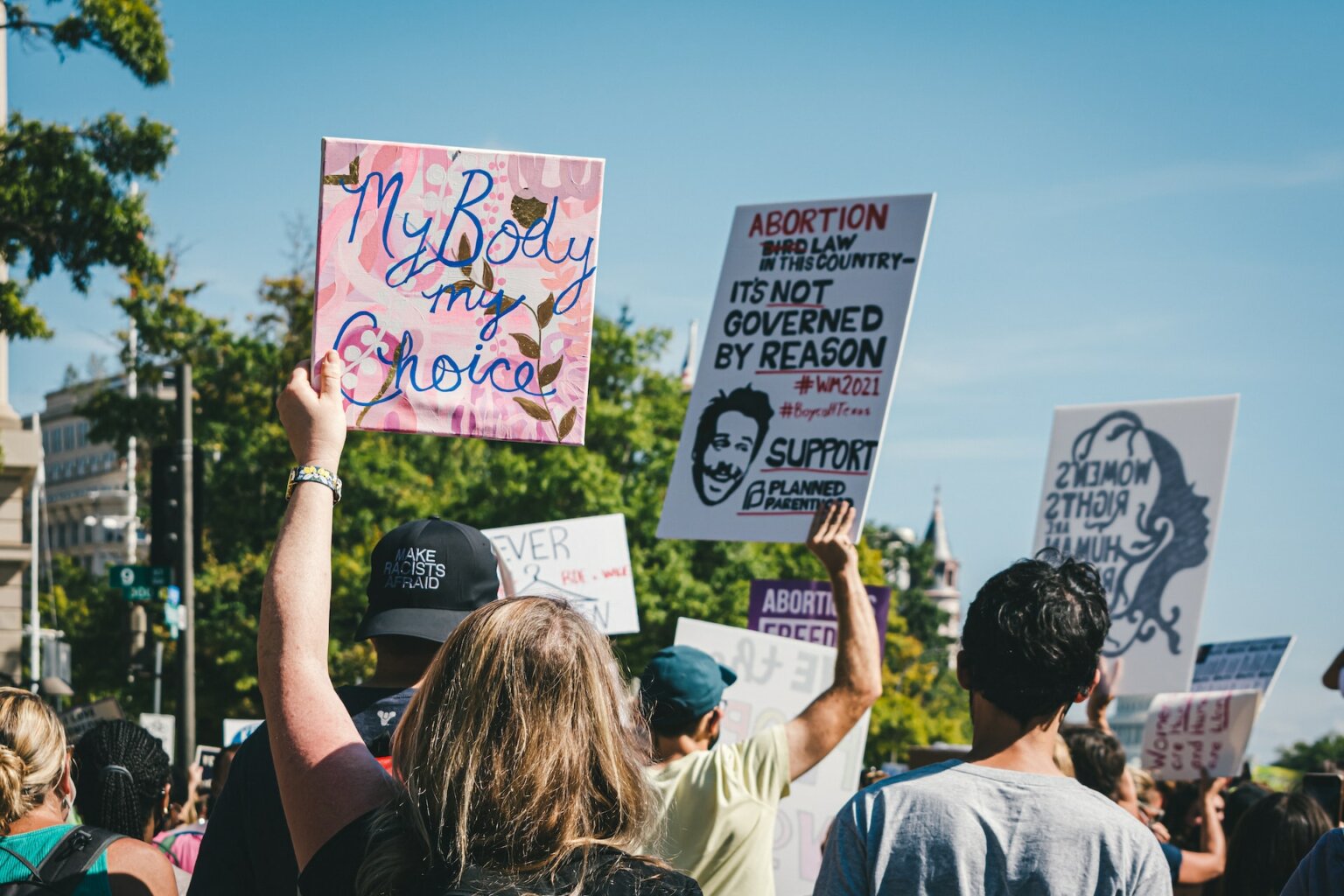- About
- Topics
- Picks
- Audio
- Story
- In-Depth
- Opinion
- News
- Donate
- Signup for our newsletterOur Editors' Best Picks.Send
Read, Debate: Engage.
| May 31, 2019 | |
|---|---|
| topic: | Abortion |
| tags: | #abortion ban, #Alabama, #USA, #women's rights |
| located: | USA |
| by: | Yair Oded |
The new law makes no exceptions for pregnancies that resulted from rape or incest, and effectively criminalizes the act of abortion; it thus violates the 1973 Roe vs. Wade Supreme Court decision, which grants all women across the U.S. the right to terminate their pregnancy up to the point of fetal viability - which usually occurs after 24 to 25 weeks.
News of Alabama’s anti-abortion law spread like wildfire and generated a visceral protest by citizens, politicians, and women’s rights organizations that vowed to challenge the policies in court.
Joining the growing clamor against the law, Brecklyn Hill, an Alabama resident, has launched a Change.org petition calling on Nathaniel Ledbetter - Alabama House of Representatives Republican Majority Leader - to overturn the abortion ban.
Alabama is not the only state to implement what is known as a ‘heartbeat’ anti-abortion policy. Five other states, including Georgia and Ohio, have passed similar abortion bans, and fourteen others are currently in the process of drafting their own version of the law. Yet, Alabama’s law stands out in its harshness, particularly due to its refusal to exclude cases of rape or incest, and its provision according to which doctors who perform abortions against the law will be charged with murder and may be sentenced to up to 99 years behind bars.
Back in November, the Alabama House of Representatives passed a series of policies which heavily restricted abortion access; now, under the new law, abortion would be regarded as a felony. The repercussions of this would be catastrophic and even life-threatening for many women across the state.
The linguistic ambiguity of the law, for instance, leaves room to interpret cases of natural miscarriage after a heartbeat is detected as a felony. The fear of prosecution may discourage some women who miscarry to seek medical attention - which could be life-threatening. Furthermore, it has become a solid consensus in the scientific community that abortion bans and policies restricting access to abortion care results in higher mortality rates among women.
Particularly vulnerable to the new law are women of colour and those of low-income background, seeing as they most likely will not have the means to travel outside the state and seek medical attention elsewhere in the country (this would require taking time off work, arranging for childcare, covering travel, lodging, and medical expenses, and so on).
Proponents of the law contend that the ban was designed to protect the life of the ‘unborn individual’ whose heart began to pound. In reality, the ‘unborn individual’ is, at this stage of the pregnancy, a 3 to 4-millimeter cluster of cells, and the so-called heartbeat is but a rudimentary electrical activity, not a function of a cardiovascular system.
Organizations such as the American Civil Liberties Union (ACLU) and Planned Parenthood have already taken steps to strike down Alabama’s abortion ban (as well as those of other states) in court. Yet, conservative lawmakers are well aware of the legal challenges their legislation would produce, and it is their hope that one of these cases will make it all the way up to the Supreme Court which, given in its current makeup, might decide to overturn its landmark 1973 ruling.
It is therefore crucial that a widespread objection to the law will emanate from the public, alongside the legal battle being waged in court.
Hill’s petition has so far garnered over 1700 signatures. Please sign the petition and help its organizer set a new goal in order to exert as much pressure as possible on Alabama’s political elite to overturn the law. Let’s show lawmakers that the encroachment on human rights and liberties will be met with a most vigorous backlash.
By copying the embed code below, you agree to adhere to our republishing guidelines.
